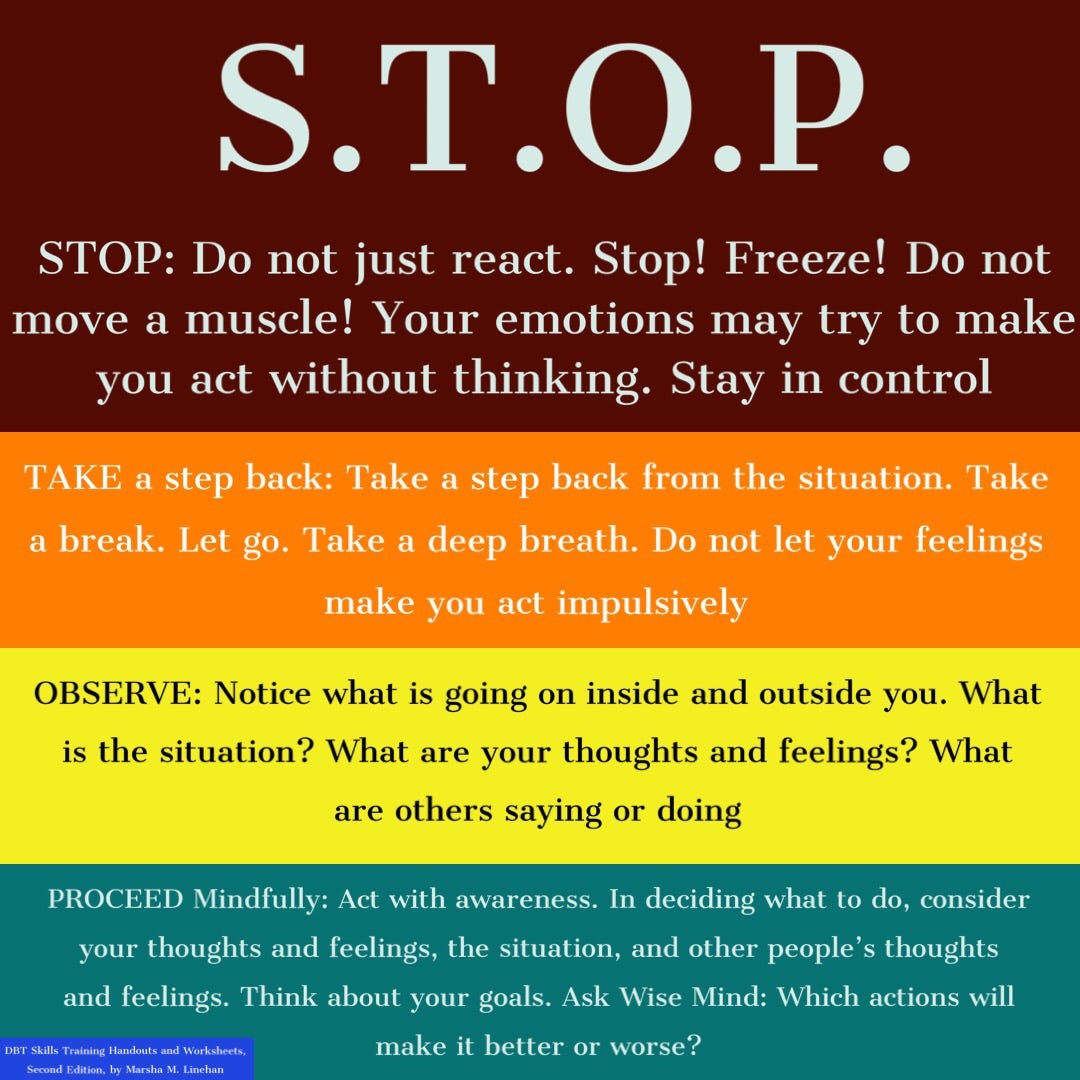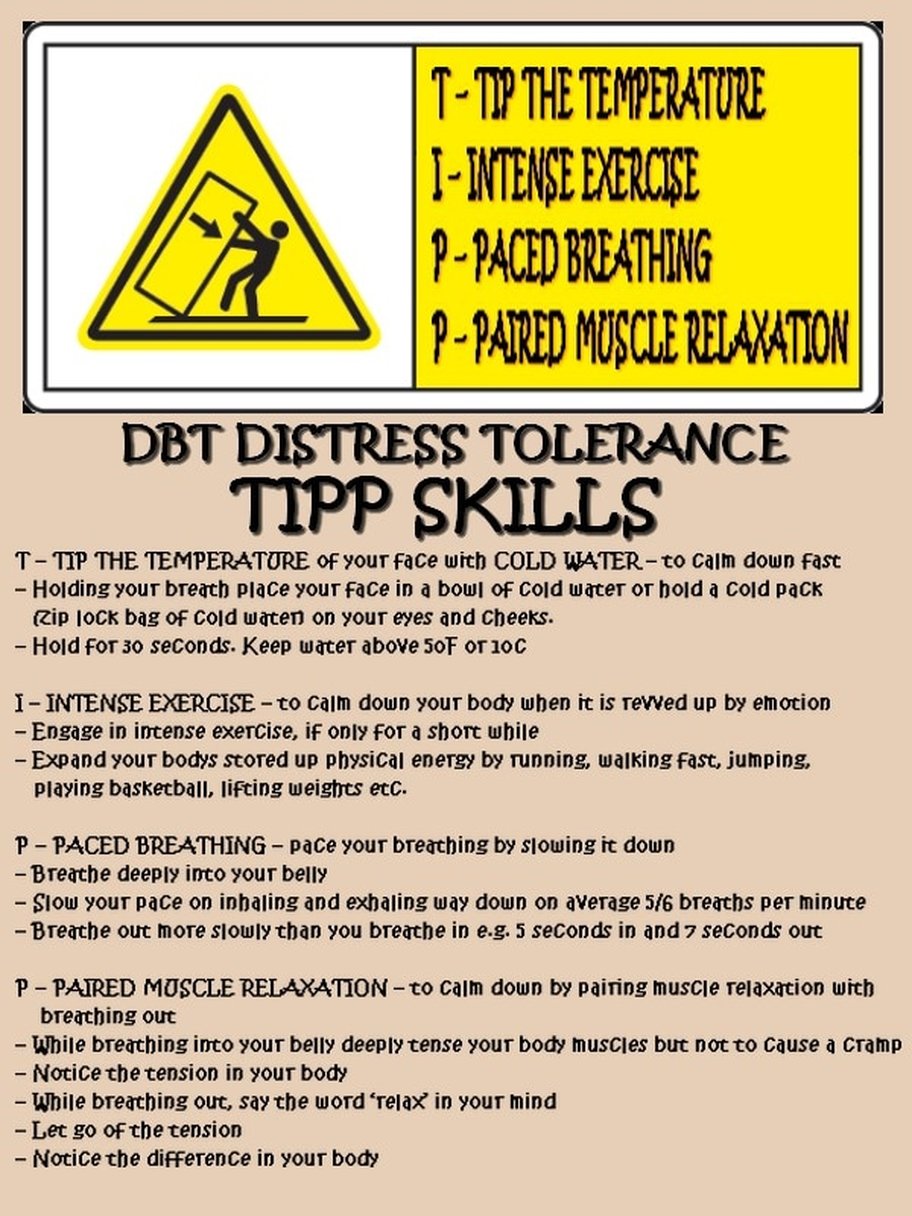All posts in this series reference working through
DBT® Skills Training Handouts and Worksheets, Second Edition, and all quotes come from that book unless otherwise specified.
Goals of Distress Tolerance:
Distress tolerance skills are important because distress is always going to be a part of life, and fighting against that fact causes more suffering. Distress is also part of making any change in ourselves, and if we shy away from that pain, we will be unable to progress. The Distress Tolerance Skills section of the book will be divided into two main types of handouts: Crisis Survival and Reality Acceptance. There will also be some material for "When the Crisis is Addiction". This blog will cover crisis survival skills.
The distress tolerance section has 3 main goals:
- "Survive crisis situations without making them worse
- Accept reality Replace suffering and being "stuck" with ordinary pain and the possibility of moving forward
- Become free of having to satisfy the demands of your own desires, urges, and intense emotions"
Crisis Survival Skills
The first subsection of skills in this section is crisis survival skills. "These are skills for tolerating painful events, urges, and emotions when you cannot make things better right away."
STOP Skill:
The first crisis survival skill is the STOP skill, which is illustrated by the graphic below:
Pros and Cons:
The next crisis survival skill is Pros and Cons. This works best for a recurring urge that, if acted upon, would make things worse in the long-term OR a recurring reluctance to do a specific thing that needs to be done to make your life better in the long-term.
For an urge that, if acted upon, would make things worse, before you are in crisis, make a list of pros and cons for acting on your urge AND a list of pros and cons for not acting on your urge. Rehearse this list, and carry it with you. When you are in crisis, reference this list to help you make choices that are beneficial in the long-term.
The same principle applies to something you need to do to make your life better in the long-term but are reluctant to do. Before you are in crisis, make a list of pros and cons for doing it AND a list of pros and cons for not doing it. Reference this list when the crisis hits.
TIP Skills:
TIP Skills are all about changing your body chemistry to calm extreme emotions. They're described in the flyer below:
Other Options:
You can also do body sensation meditation or other exercises with your 5 senses for crisis management.


Comments
Post a Comment